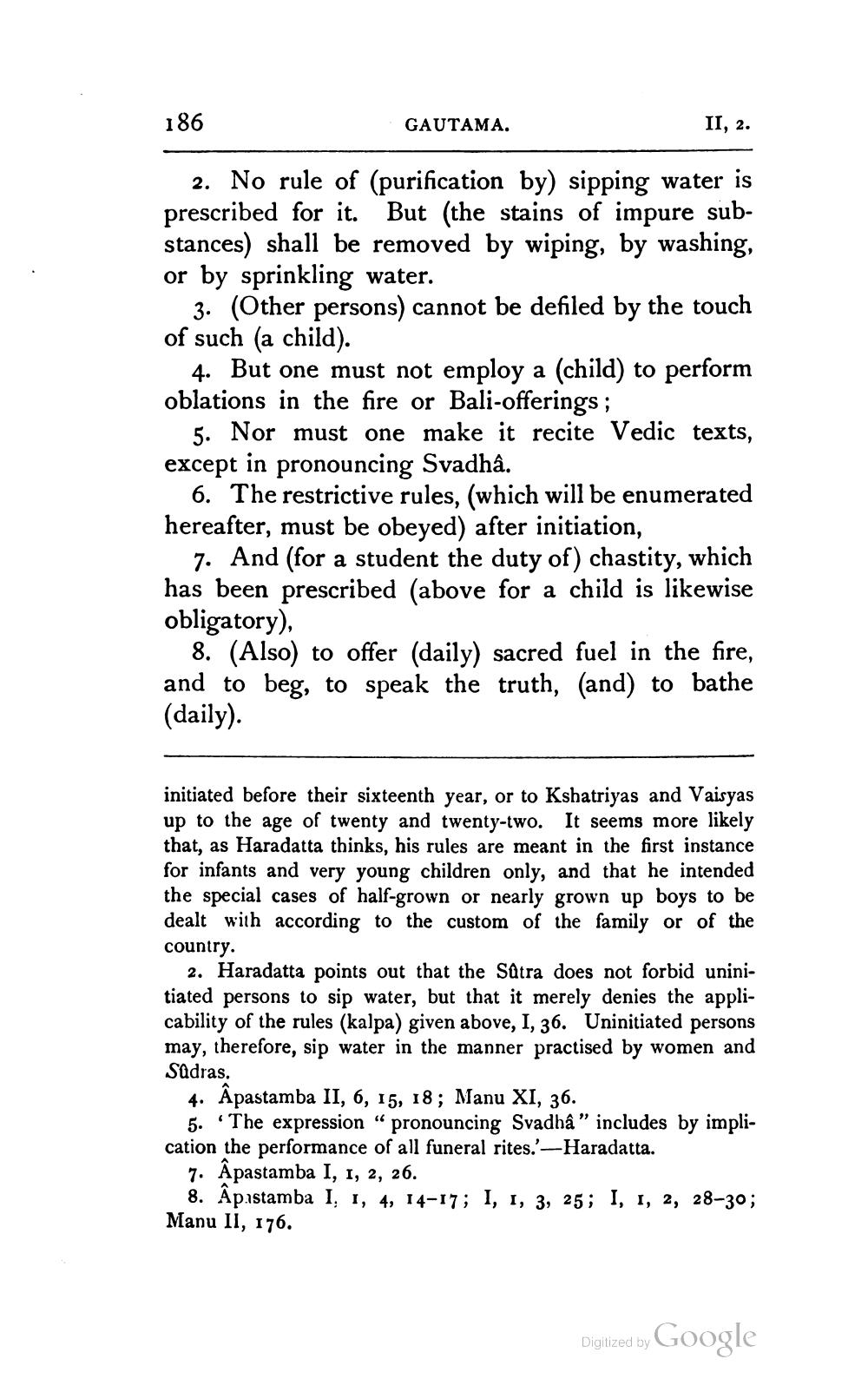________________
186
GAUTAMA.
II, 2.
2. No rule of (purification by) sipping water is prescribed for it. But the stains of impure substances) shall be removed by wiping, by washing, or by sprinkling water.
3. (Other persons) cannot be defiled by the touch of such (a child).
4. But one must not employ a (child) to perform oblations in the fire or Bali-offerings;
5. Nor must one make it recite Vedic texts, except in pronouncing Svadhâ.
6. The restrictive rules, (which will be enumerated hereafter, must be obeyed) after initiation,
7. And (for a student the duty of) chastity, which has been prescribed above for a child is likewise obligatory),
8. (Also) to offer (daily) sacred fuel in the fire, and to beg, to speak the truth, (and) to bathe (daily).
initiated before their sixteenth year, or to Kshatriyas and Vaisyas up to the age of twenty and twenty-two. It seems more likely that, as Haradatta thinks, his rules are meant in the first instance for infants and very young children only, and that he intended the special cases of half-grown or nearly grown up boys to be dealt with according to the custom of the family or of the country.
2. Haradatta points out that the Satra does not forbid uninitiated persons to sip water, but that it merely denies the applicability of the rules (kalpa) given above, I, 36. Uninitiated persons may, therefore, sip water in the manner practised by women and Sadras.
4. Āpastamba II, 6, 15, 18; Manu XI, 36.
5. The expression “ pronouncing Svadhâ” includes by implication the performance of all funeral rites.'-Haradatta.
7. Apastamba I, 1, 2, 26.
8. Âpastamba I, 1, 4, 14-17; I, 1, 3, 25; I, 1, 2, 28-30; Manu II, 176.
Digitized by Google




